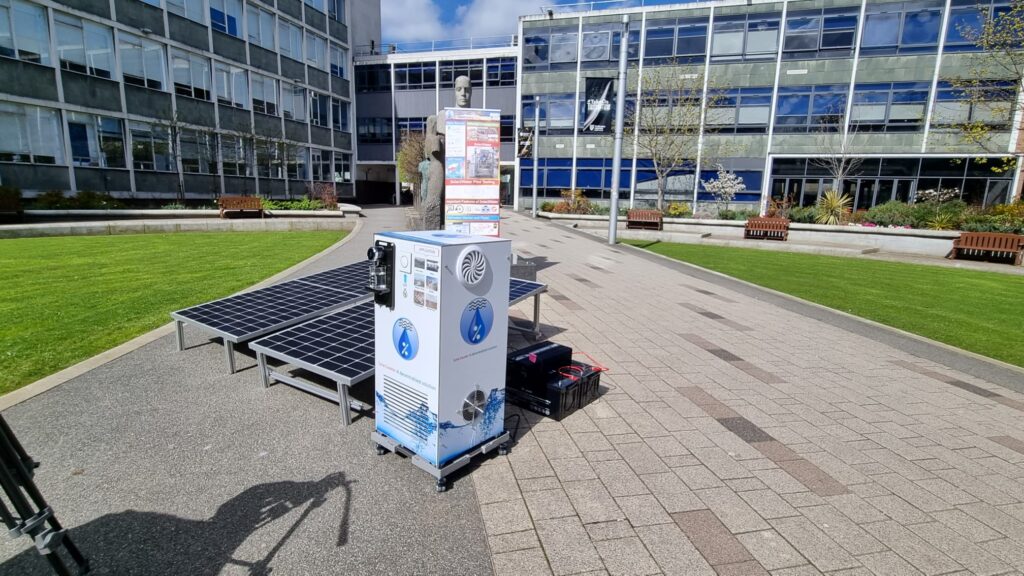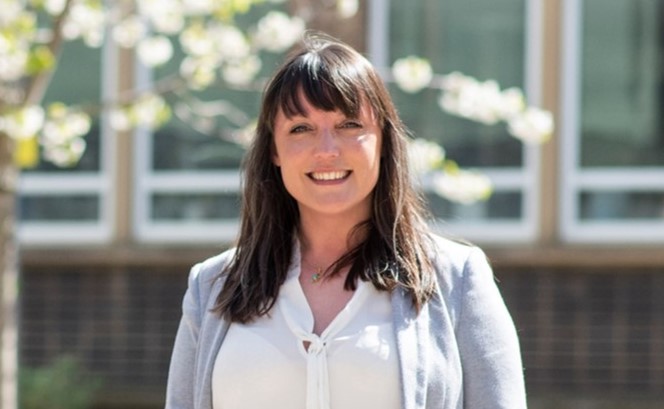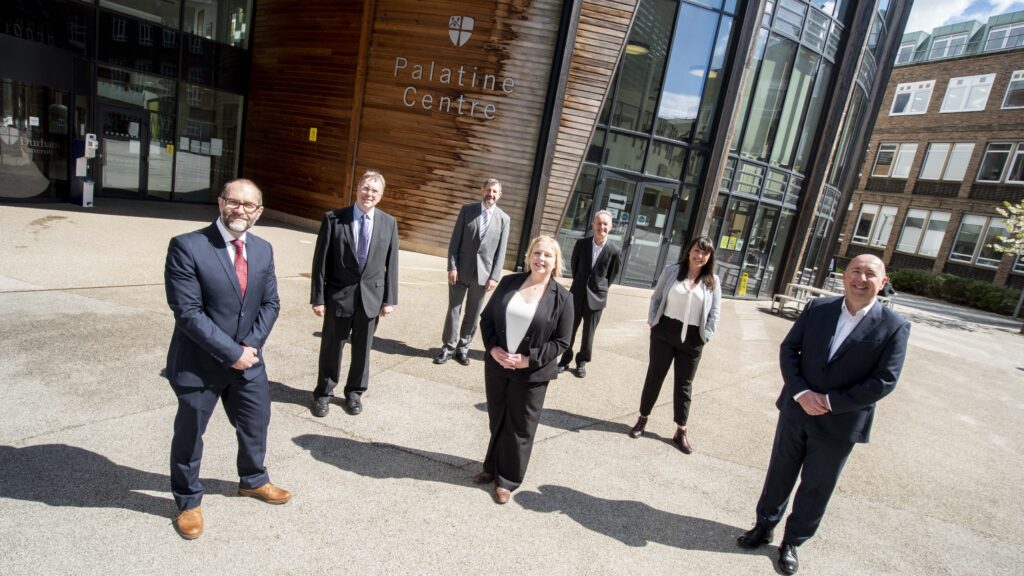Scientists at Northumbria University have developed a sustainable solution for clean drinking water, that can be deployed to rural communities and set up easily without scientific know-how.
According to the United Nations, one in three people worldwide still live without access to safe drinking water, sanitation and hygiene services, a problem which is only worsening with climate change, conflicts and population growth. This lack of access to water leaves communities across the globe exposed to water- and sanitation-related diseases, with over 800,000 people estimated to die each year from diarrhoea alone as a result of unsafe drinking-water, sanitation and hand hygiene.
Over the last decade, Dr Muhammad Wakil Shahzad, an Assistant Professor from Northumbria’s Department of Mechanical and Construction Engineering, has been developing pioneering solutions to help tackle water scarcity. His latest project has seen the creation of ‘Solar2Water’, an innovative water production unit, which uses solar energy to extract moisture from the air and turn it into clean, safe drinking water.
Solar2Water system
The patented Solar2Water system overcomes the operational limitations of conventional atmospheric water generators, with major advantages including that it can produce a constant amount of water, regardless of the outside air humidity and that it generates double the amount of water using the same amount of energy.
Running on solar energy alone, the unit features two solar panels, which, once unfolded, begin harnessing energy from the sun to kick-start water production. A battery system that stores energy during the day and releases it at night enables 24-hour operation, producing water for daily usage.

No training or experience is required to use the system and its robust mechanical build means it can be operated in any environment. This allows Solar2Water to be deployed quickly and easily to any location, such as disaster zones, field hospitals, offices, refugee camps, army camps and remote communities where there is no grid connection or water availability nearby. It is a water neutral system – it can produce water without the need for a body of water.
Dr Shahzad’s technology could be game-changing in helping to achieve sustainable water supplies in under-developed areas and will help to progress two of the UN’s Sustainable Development Goals – Zero Hunger and Clean Water and Sanitation for all.
Dr Muhammad Wakil Shahzad
Speaking about the project, Dr Shahzad said: “Importantly, Solar2Water also has the potential to help women and girls in remote communities, who often spend hours each day walking miles to collect water. Producing water from air at their locality using solar energy can help to remove barriers to education, recreational activities and escaping poverty.”
Northern Accelerator pre-incorporation funding
Dr Shahzad secured initial funding from the University to demonstrate the Solar2Water concept. Following the successful development of the prototype unit in the lab, Dr Shahzad was granted Proof-of-Concept funding from Northern Accelerator.
The pilot developed based on the Northern Accelerator proof-of-concept system can produce enough water for three to four households – 15 to 20 litres per day – but the team behind Solar2Water have plans to upscale the water production capacity to 50 litres per day, so that one unit can produce enough drinking water for a small community. The Proof-of-Concept funding is supporting the scaleup and commercialisation of Solar2Water, with the ultimate aim of launching a university spinout company that could mass produce the units to supply to communities in need worldwide.
Dr Tim Hammond, Northern Accelerator
Tim Hammond, Programme Lead of Northern Accelerator and Director of Commercialisation and Economic Development Durham University, said: “There is significant potential for the excellent research conducted in the North East’s universities to help address some of the challenges we face regionally, nationally and globally. Northern Accelerator has transformed university spin-out performance from the region’s universities, helping academics use their research to achieve real world social and economic impact.
“Our integrated approach to the commercialisation ecosystem includes providing funding for proof-of-concept projects. Northern Accelerator are pleased to be able to support Dr Shahzad with this funding – to help bring the technology closer to being a commercial product that can be made available to those who struggle with access to clean drinking water.”
Northumbria University
Northumbria University is ranked highly for its engineering research power in the Research Excellence Framework 2021, with 90 per cent of its studies rated as either world-leading or internationally excellent. Find out more about Northumbria University’s Department of Mechanical and Construction Engineering by visiting www.northumbria.ac.uk/mce



